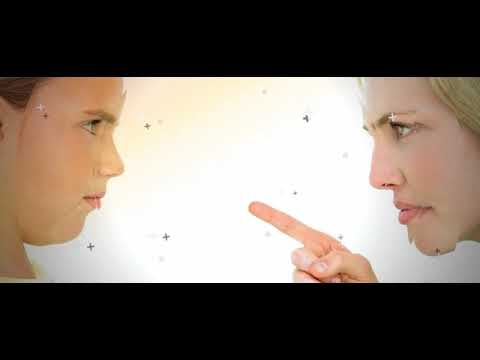
5 Different Types of Parenting Styles and Child Discipline Strategies 1) Positive Parenting What Is Positive Parenting: The Scientific Origin of Positive Parenting: Positive parenting as a formalized parenting philosophy is actually a relatively new phenomenon Positive parenting draws its main values, insights and theories from one of the latest newly accepted scientific branches of psychology, positive psychology
Positive psychology as an institutionalized scientific discipline was coined in 1998 by American psychologist Martin Seligman Positive psychology, also nicknamed happiness psychology, is basically a psychological study on the essence of human happiness, fulfillment and meaningfulness What characterize genuinely happy and satisfied people and how do they get there? As a therapeutic strategy positive psychology is more interested in looking into to the future – possibilities, goals and abilities – rather than just focussing on the past – trauma, illness and pain In practice this means helping people finding their inner strengths, skills and desires rather than just focusing the more traditional themes of emotional pain, trauma and illness that had reigned in the practical field of psychology until now Positive psychology does not advocate completely discarding the focus on the past but recommends a balance thus including a focus on the future (which the traditional therapeutic discipline tends to ignore)
In other words the focus in positive psychology is on building and growing rather than just repairing 2) Attachment Parenting (Also Known as Intuitive Parenting or Natural Parenting) What is Attachment Parenting: The Scientific Origin of Attachment Parenting: Attachment parenting is a parenting style coined and developed by professor in pediatrics, Dr Sears The parenting philosophy of attachment parenting draws on British psychologist John Bowlby's 1940s and 1950s cutting edge studies of early child separation behavior, child grief and caregiver attachment In his research John Bowlby abandoned the prevailing psychoanalytic mindset put forward by Anna Freud and Melanie Klein and developed his own groundbreaking attachment theory
Attachment theory was empirically refined by developmental psychologist Mary Ainsworth who conducted the famous lab research study "The Strange Situation" experiment where she delineated the the four infant attachment styles of secure attachment, avoidant attachment, ambivalent attachment and insecure attachment The healthiest attachment style with the most desirable and positive outcome is secure attachment, which is also the goal of attachment parenting 3) Unconditional Parenting (Also Known as Conscious Parenting) What is Unconditional Parenting: The Scientific Origin of Unconditional Parenting: The term unconditional parenting is coined by author Alfie Kohn and stems from his book published under the same name Unconditional parenting: Sunglasses with read heart shaped glass Unconditional parenting is based on the therapeutic principles of the unconditional positive regard
Treating a child from the philosophy of an unconditional positive regard means accepting and supporting the child no matter how he or she behaves or what he or she says The child will thus gain an experience of being valued for who he or she is regardless of whether his or her actions are approved of or disapproved of The unconditional positive regard was coined by the famous therapist Carl Rogers In short, Carl Rogers believed that raising a child in the spirit of the unconditional positive regard is necessary for the child to be able reach full growth and unhindered self-actualization According to Rogers, a typical and widespread hindrance to full self-actualization is "conditional positive regard", also known as praise
When a child is praised for accepted behavior, the child comes to equate his or actions with his or her self worth Thus in order to feel accepted the child will show 'good' behavior – not because it feels good as such but because the child has learnt that good behavior leads to approval and attention Thus the child's motivation for 'being good' is externally based rather than originating from within! 4) Spiritual Parenting / Holistic Parenting What Is Spiritual Parenting: The Origin of Spiritual Parenting: As you can imagine spiritual parenting does not have a root in science as such However, spiritual parenting can be said to have roots in modern teachings of eastern spiritual philosophy which is known for a focus on raising inner awareness, appreciating that which IS and being deeply connected with everything in the Now Spiritual parenting is thus not about worshipping a specific God or Goddess or about adhering to a specific formalized religion
It's not fluffy or airy Rather the opposite, actually It's really quite down to earth It's just about Being, full acceptance and seeking deep interconnectedness! 5) Slow Parenting (Also Known as Nurturant Parenting) What Is Slow Parenting: The Origin of Slow Parenting: Slow parenting is a reactionary parenting response to the both the stressful rat race mentality and suffocating, overprotective tendencies of modern western parenting The term "slow parenting" is a term that has been created on the basis of Carl Honoré's book Under Pressure: Rescuing our Children from the Culture of Hyper-Parenting
Carl Honoré doesn't actually coin the term but he is the one responsible for the inspiration behind the philosophy of slow parenting Here is Carl Honeré's definition of "slow" (taken from this interview): ""Slow" in this context does not mean doing everything at a snail’s pace It means doing everything at the right speed That implies quality over quantity; real and meaningful human connections; being present and in the moment" In this way Carl Honoré opposes the modern tendency of constantly rushing things to be a step ahead
This is not only stressful for us, the parents, but our constant battle with time also affects our children and impedes their natural desire to explore the world at their own pace Rather than being focussed on life as an end in terms of results, competition and prestige, Carl Honoré recommends that we focus on life as a process or journey which makes it about Being, loving and exploring




